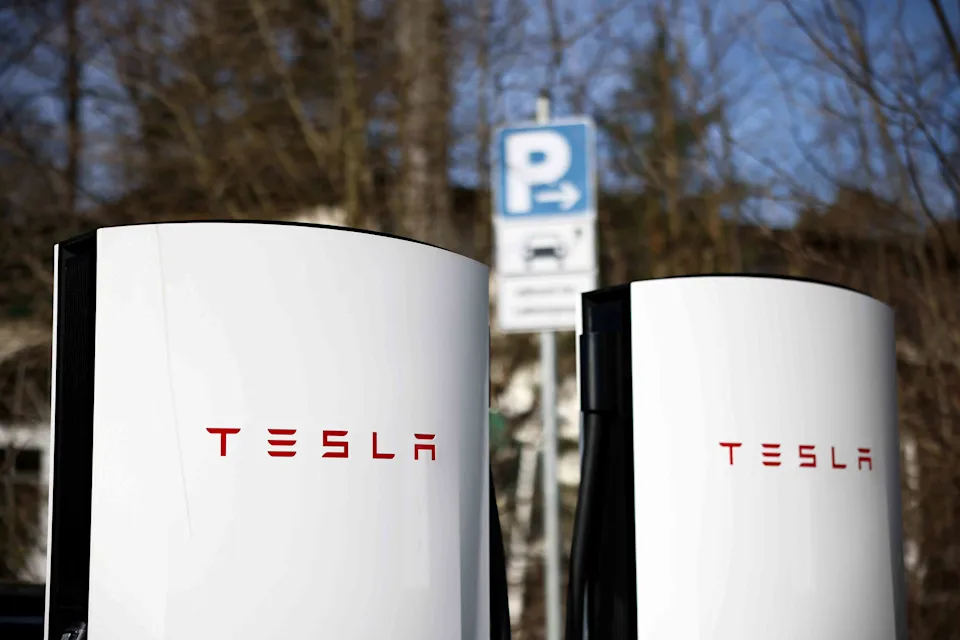
Tesla (TSLA) shares took a significant hit on Monday, plunging over 10% and marking one of the worst performances among S&P 500 stocks for the day. This steep decline continues a troubling trend for the electric vehicle giant, which has now seen its stock price drop for seven consecutive weeks. With this latest downturn, Tesla has erased all of its post-election gains and has lost more than half of its value since reaching a record high on December 17.
Key Takeaways:
- Tesla shares fell over 10% on Monday, making it one of the biggest losers in the S&P 500.
- The stock is now trading below its pre-election levels and has lost over 50% of its value since December 17.
- Concerns about Elon Musk’s involvement in the Trump administration, tariffs, and falling sales in China and Europe have added to the pressure on Tesla shares.
Tesla’s Market Struggles
Tesla shares tumbled to approximately $227 per share on Monday, a sharp decline of around 13%, pulling the company’s market capitalization below $820 billion, according to Visible Alpha data. Broader market trends have also contributed to Tesla’s struggles, with major indices experiencing declines, but Tesla’s losses far outpaced the general market downturn.
The company has faced a variety of headwinds in recent months, including weak fourth-quarter delivery numbers and disappointing earnings reports. Additionally, ongoing uncertainty regarding tariffs imposed by President Donald Trump has further exacerbated investor concerns. The electric vehicle market, which was already dealing with increased competition and slowing demand, is now facing additional pressure as Tesla sales in China and Europe continue to decline.
Musk’s Role in the Trump Administration Raises Concerns
Some analysts and investors worry that Tesla’s close association with the Trump administration may be damaging its brand. Since Trump’s election victory in November, Musk has been actively involved with the Department of Government Efficiency, a cost-cutting initiative spearheaded by the administration. While some see Musk’s involvement as a strategic move to influence policy decisions beneficial to Tesla, others fear it could alienate a portion of the company’s customer base, particularly those who are politically opposed to Trump.
Analyst Sentiment Remains Divided
Wall Street analysts are split on Tesla’s stock, highlighting the uncertainty surrounding its future trajectory. Among the 19 brokerage firms tracked by Visible Alpha, 10 have issued a “buy” rating, while five recommend holding the stock, and four have given it a “sell” rating.
On Monday, UBS analysts reaffirmed their “sell” rating on Tesla and adjusted their price target downward from $259 to $225. Additionally, UBS cut its forecast for Tesla’s first-quarter vehicle deliveries, lowering its estimate from 437,000 to 367,000. The firm cited concerns over sluggish demand for the new Model Y and the anticipated launch of a lower-cost model, which could put further pressure on profit margins.
Can Tesla Recover?
Despite the current turbulence, some analysts remain optimistic about long-term prospects. The company continues to innovate in the EV market and has several new vehicle launches in the pipeline. However, the near-term challenges—ranging from macroeconomic concerns to declining demand in key markets—pose significant risks.
The broader market also remains volatile, with investors weighing the implications of economic policies under the Trump administration, global trade uncertainties, and inflation concerns. If can successfully navigate these challenges while maintaining its growth trajectory, it may eventually recover from this downturn. However, given the recent stock performance, investors remain cautious as they assess the company’s ability to regain momentum.
Conclusion
Tesla’s stock has experienced a sharp decline, wiping out all of its post-election gains and falling over 50% since December 17. With ongoing concerns surrounding CEO Elon Musk’s political involvement, tariff uncertainties, and declining global sales, investors are left wondering whether the EV giant can regain its footing. Analysts remain divided, with some seeing potential in new vehicle launches while others caution against further declines. As moves forward, its ability to navigate these challenges will determine whether it can recover or if further struggles lie ahead